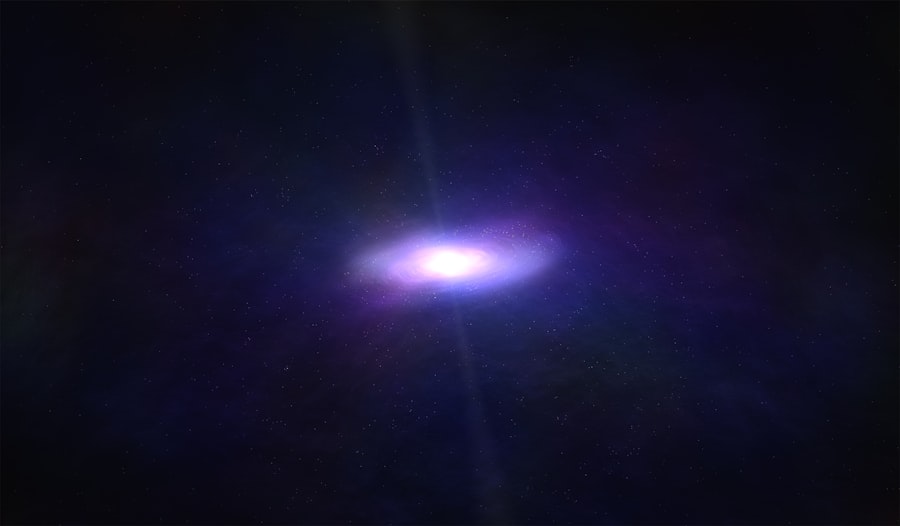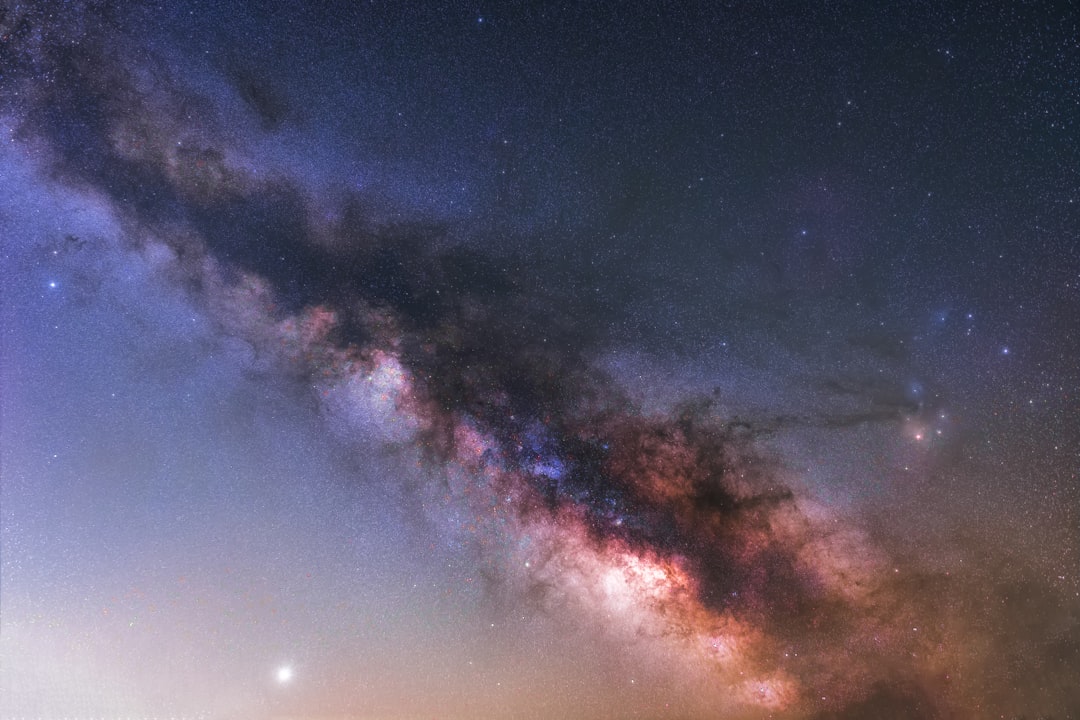The concept of the cosmic event horizon is a fascinating and complex topic that has intrigued astronomers and physicists alike. It represents a boundary in the universe beyond which events cannot affect an observer. This boundary is not merely a theoretical construct; it has profound implications for our understanding of the cosmos.
As scientists delve deeper into the mysteries of the universe, the cosmic event horizon emerges as a crucial element in the study of cosmology, black holes, and the very fabric of space-time. To grasp the significance of the cosmic event horizon, one must first appreciate its relationship with the expansion of the universe. As galaxies move away from each other due to cosmic expansion, there comes a point where light emitted from these distant galaxies will never reach an observer on Earth.
This phenomenon raises questions about the nature of reality and perception in an ever-expanding universe. The cosmic event horizon serves as a reminder of the limitations imposed by the speed of light and the vastness of space, challenging our understanding of what lies beyond our observable universe.
Key Takeaways
- The Cosmic Event Horizon is the boundary beyond which events cannot affect an observer.
- Black holes play a crucial role in the formation and expansion of the Cosmic Event Horizon.
- The Cosmic Event Horizon affects light and time by causing gravitational time dilation and redshift.
- The Cosmic Event Horizon is connected to the Big Bang as it marks the boundary of the observable universe.
- Observing the Cosmic Event Horizon from Earth requires advanced telescopes and technology.
- Theoretical implications of the Cosmic Event Horizon include insights into the nature of dark energy and the fate of the universe.
- Studying the Cosmic Event Horizon has practical applications in improving our understanding of space-time and gravitational physics.
- The future of research on the Cosmic Event Horizon involves exploring its connection to quantum mechanics and the nature of singularities.
- Common misconceptions about the Cosmic Event Horizon include the idea that it is a physical barrier and that it represents the edge of the universe.
- The Cosmic Event Horizon is significant in understanding the universe as it provides a window into the history and evolution of the cosmos.
What is the Cosmic Event Horizon?
The cosmic event horizon can be defined as a boundary in space-time that delineates the limits of what can be observed from a given point in the universe. It is not a physical surface but rather a conceptual boundary that marks the threshold beyond which events cannot influence an observer. This horizon is dynamic, shifting as the universe expands and as observers move through space-time.
The implications of this boundary are profound, as it suggests that there are regions of the universe that are forever inaccessible to us. At its core, the cosmic event horizon is tied to the concept of light travel time. Light from distant galaxies takes time to reach Earth, and as the universe expands, some galaxies recede faster than light can travel.
Consequently, there exists a limit to how far one can see into the universe. This limit is not static; it evolves as cosmic expansion continues.
The Role of Black Holes in the Cosmic Event Horizon

Black holes play a pivotal role in discussions surrounding the cosmic event horizon. These enigmatic entities possess their own event horizons, which are boundaries beyond which nothing can escape their gravitational pull. The event horizon of a black hole marks the point at which escape velocity exceeds the speed of light, rendering any information or matter that crosses it irretrievable to an outside observer.
This creates a stark contrast with the cosmic event horizon, which pertains to the entire universe rather than individual celestial objects. The relationship between black holes and the cosmic event horizon raises intriguing questions about information loss and the nature of reality. When matter falls into a black hole, it seemingly disappears from our universe, leading to debates about whether information is lost forever or if it can be recovered in some form.
This dilemma has significant implications for theories of quantum mechanics and general relativity, as scientists strive to reconcile these two fundamental pillars of modern physics.
How the Cosmic Event Horizon Affects Light and Time
| Aspect | Effect |
|---|---|
| Light | Bends around the cosmic event horizon due to gravitational lensing |
| Time | Slows down near the cosmic event horizon due to gravitational time dilation |
| Observation | Makes it difficult to observe objects beyond the cosmic event horizon |
The cosmic event horizon has profound effects on both light and time, fundamentally altering how they are perceived in an expanding universe. As galaxies move away from an observer, their light becomes increasingly redshifted due to the Doppler effect.
As a result, light from distant galaxies may eventually become undetectable, reinforcing the idea that there are regions of space that are forever beyond reach. Time also behaves differently near the cosmic event horizon. According to Einstein’s theory of relativity, time is not a constant; it can be affected by gravitational fields and relative motion.
As one approaches the cosmic event horizon, time appears to slow down relative to an observer situated farther away. This phenomenon creates a fascinating interplay between space and time, suggesting that our understanding of temporal progression is intricately linked to our position within the universe.
The Connection Between the Cosmic Event Horizon and the Big Bang
The cosmic event horizon is intimately connected to the origins of the universe, particularly in relation to the Big Bang theory. The Big Bang marks the beginning of space-time as we know it, leading to an expansion that continues to this day. As this expansion unfolds, it creates a cosmic event horizon that delineates what can be observed from any given point in space-time.
In essence, every observer in the universe has their own unique cosmic event horizon shaped by their location and motion through space-time. This means that different observers may have vastly different views of the universe’s history and structure based on their respective horizons. The connection between the cosmic event horizon and the Big Bang underscores how our understanding of cosmic history is influenced by both time and space, revealing layers of complexity in our quest to comprehend the universe’s origins.
Observing the Cosmic Event Horizon from Earth

Observing the cosmic event horizon presents unique challenges for astronomers and astrophysicists. While direct observation of this boundary is impossible due to its nature, scientists can infer its existence through various methods. One approach involves studying distant galaxies and their redshifted light, which provides insights into their motion relative to Earth.
By analyzing this data, researchers can estimate how far away these galaxies are and how their light is affected by cosmic expansion. In addition to redshift observations, scientists utilize advanced telescopes equipped with cutting-edge technology to capture images of distant celestial objects. Instruments like the Hubble Space Telescope have provided invaluable data about galaxies at various stages of evolution, allowing researchers to piece together a more comprehensive picture of the universe’s structure and behavior.
While these observations do not directly reveal the cosmic event horizon itself, they contribute to a broader understanding of its implications for cosmology.
Theoretical Implications of the Cosmic Event Horizon
The theoretical implications of the cosmic event horizon extend far beyond mere observation; they challenge existing paradigms in physics and cosmology. One significant area of inquiry revolves around dark energy, a mysterious force believed to be driving the accelerated expansion of the universe. The existence of a cosmic event horizon suggests that dark energy may play a crucial role in shaping not only the fate of galaxies but also the ultimate destiny of the universe itself.
Moreover, theories regarding information loss in black holes intersect with discussions about the cosmic event horizon. If information cannot escape from black holes, what does this mean for our understanding of reality? The interplay between these concepts raises fundamental questions about causality and determinism in physics, prompting researchers to explore new frameworks that could reconcile these apparent contradictions.
Practical Applications of Studying the Cosmic Event Horizon
While much of the discourse surrounding the cosmic event horizon may seem abstract or theoretical, there are practical applications that arise from studying this phenomenon. For instance, advancements in observational technology driven by research into cosmic horizons have led to improved imaging techniques and data analysis methods in astronomy. These innovations have far-reaching implications for various fields beyond cosmology, including telecommunications and materials science.
Furthermore, understanding how light behaves near cosmic boundaries can inform developments in quantum computing and information theory. As researchers explore concepts like entanglement and information transfer across vast distances, insights gained from studying cosmic event horizons may provide valuable perspectives on how information is processed and transmitted in complex systems.
The Future of Research on the Cosmic Event Horizon
The future of research on the cosmic event horizon holds immense promise as scientists continue to push boundaries in observational astronomy and theoretical physics. Upcoming missions such as NASA’s James Webb Space Telescope aim to provide unprecedented views into deep space, potentially revealing new insights into distant galaxies and their relationship with cosmic horizons. These advancements could lead to breakthroughs in understanding dark energy, galaxy formation, and even fundamental questions about time itself.
Moreover, interdisciplinary collaboration among physicists, astronomers, and mathematicians will be essential for unraveling the complexities associated with cosmic event horizons. By integrating diverse perspectives and methodologies, researchers can develop more comprehensive models that account for both observational data and theoretical frameworks. The future landscape of research promises exciting discoveries that could reshape humanity’s understanding of its place within an ever-expanding universe.
Debunking Common Misconceptions About the Cosmic Event Horizon
Despite its significance in modern cosmology, misconceptions about the cosmic event horizon persist among both laypeople and even some scholars. One common misunderstanding is equating it with a physical boundary or surface; however, it is essential to recognize that it is a conceptual construct rather than a tangible entity. This distinction is crucial for grasping its implications for observation and understanding.
Another misconception involves assuming that everything beyond the cosmic event horizon is entirely unreachable or devoid of significance. In reality, while events occurring beyond this boundary cannot influence observers within it, they still contribute to our overall understanding of cosmological evolution. Recognizing these nuances helps clarify discussions surrounding cosmic horizons and fosters deeper engagement with complex scientific concepts.
The Significance of the Cosmic Event Horizon in Understanding the Universe
The significance of the cosmic event horizon extends far beyond its role as a mere boundary; it serves as a lens through which humanity can explore fundamental questions about existence itself. By grappling with concepts like causality, time dilation, and information loss, researchers are compelled to confront profound philosophical inquiries about reality’s nature. Ultimately, studying the cosmic event horizon enriches humanity’s understanding of its place within an expansive cosmos filled with mysteries yet to be unraveled.
As scientists continue their quest for knowledge about this enigmatic boundary, they contribute not only to advancements in physics but also to humanity’s collective narrative about its origins and future within an ever-evolving universe.
The concept of a cosmic event horizon is a fascinating topic in astrophysics, as it marks the boundary beyond which nothing can escape the gravitational pull of a black hole. For a deeper understanding of related cosmic phenomena, you can explore the article on Freaky Science, which delves into various aspects of black holes and their mysterious properties.
WATCH THIS! The Universe Will Die In Silence. This Is The Googol Year Timeline.
FAQs
What is a cosmic event horizon?
A cosmic event horizon is the boundary beyond which events cannot affect an observer. It is the maximum distance from which light or any other signal can reach the observer.
How does the cosmic event horizon relate to the universe?
The cosmic event horizon is related to the expansion of the universe. As the universe expands, the cosmic event horizon also expands, limiting the observable universe for any given observer.
What is the significance of the cosmic event horizon?
The cosmic event horizon plays a crucial role in understanding the observable universe and the limitations of our ability to observe distant objects and events.
How does the cosmic event horizon affect our understanding of the universe?
The cosmic event horizon affects our understanding of the universe by placing a limit on the information we can gather about the distant universe. It also has implications for cosmological theories and models.
Can anything escape the cosmic event horizon?
No, once an object or signal crosses the cosmic event horizon, it cannot escape and will be forever beyond the reach of any observer outside the horizon.
